5th Floor, West Tower, World Financial Centre
1 Dong San Huan Middle Road
Chaoyang District, Beijing 100020, China
Tel: +86 10 5081 5880

July 24, 2019
Prof. Zhan Jiang Won SJTU’s Educator Award
Shanghai Jiao Tong University (SJTU) recently named Prof. Zhan Jiang at Shanghai Advanced Institute of Finance (SAIF) as the winner of SJTU’s Educator Award, for her academic rigidity, coaching by example, excellent academic integrity and professional ethics highly recognized by the students. As one of the highest honors at SJTU, the Educator Award is developed to honor distinguished faculty members who have made remarkable contributions in teaching and talent cultivation and demonstrated the merits of “value-added” education. As one of the first full-time professors joining SAIF in July 2011, Prof. Zhan Jiang has played an indispensable role in SAIFs advancement in the fields of teaching, research and administration. Over the years, she has taught a variety of SAIF programs, including MF, MBA, EMBA and Executive Education programs, ranging from “Corporate Finance” to “M&A and Restructuring”, which are all highly praised by the students. In 2017, Prof. Jiang Zhan won the inaugural SAIF Teaching Merit Award for her exemplary teaching performance.

July 22, 2019
The 17th China International Conference in Finance Held in Guangzhou
The 17th China International Conference in Finance (CICF) was held in Guangzhou from July 9th to 12th, 2019. CICF was founded in 2002 by the MIT Sloan School of Management and other organizations. This year, it was co-sponsored by Shanghai Advanced Institute of Finance (SAIF) at Shanghai Jiao Tong University (SJTU) and the Department of Accounting of the School of Management at Jinan University. It was attended by financial experts and industry leaders from all over the world. This year’s event has 894 registered participants, a record high. Prof. Jiang Wang, Mizuho Financial Group Professor at the MIT Sloan School of Management, Chair of SAIF Faculty Council and Distinguished Professor at SAIF, served as Chairman of the Conference. Prof. Xiaoyun Yu, Professor of Finance at Kelley School of Business, Indiana University and Distinguished Professor at SAIF, acted as Chairman of the Paper Review Committee at the Conference. Prof. Zhiguo He, Professor of Finance at the Booth School of Business, University of Chicago, served as Co-chairman. Prof. Chun Chang, Executive Dean and Professor of Finance at SAIF, attended the event and delivered a speech. The Conference invited Prof. Robert W. Purcell, Professor of Finance at Cornell University's Samuel Curtis Johnson Graduate School of Management, and Prof. Maureen O'Hara, from the University of Technology at Sydney, to deliver a keynote speech entitled "Market Ethics”. Prof. O’Hara's research demonstrated the role of ethical factors in the structure of financial networks. It revealed that ethical behaviors can survive given endogenous and rational choices, but only in the network architecture of certain clusters, and the stability of the behaviors depends on the structure of the financial network. Furthermore, corporate ethical behaviors can be effectively supported and guided through market design and regulation. A total of 1,325 qualified submissions were contributed by 2,907 authors, of which 255 papers were shortlisted. The authors of the selected papers were professors and doctoral students from major business schools around the world, as well as researchers from financial institutions and regulators. The conference lasted for three days, delivering 64 programs covering many frontier areas of the financial world.
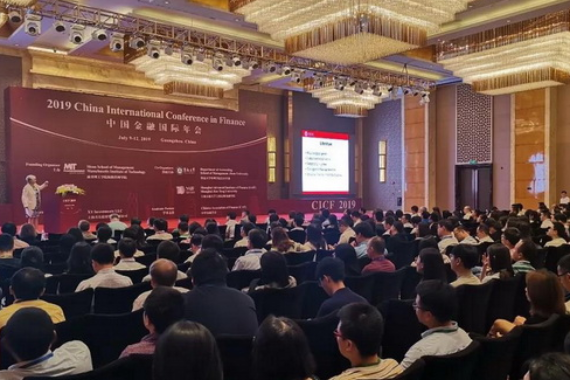
July 10, 2019
2019 SAIF Commencement on SJTU Xuhui Campus
On July 6th, 2019 SAIF Commencement was held at the Wenzhi Auditorium on Xuhui Campus of Shanghai Jiao Tong University (SJTU), where 391 students graduated and set off on a new journey witnessed by both the faculty and their own families. The ceremony kicked off in the solemnness of the National Anthem. Zhen Huang, Vice President of Shanghai Jiao Tong University, extended his congratulations to the graduates and hoped that they would grasp the trends and opportunities of the times and contribute toward the evolution of China's financial sector. Jiang Wang, Chair of Faculty Council at SAIF, delivered a speech on behalf of the Institute. He mentioned that the great changes in the economic and financial domains at home and abroad imply exceptional opportunities for development and innovation, which provide unlimited potential for professionals and entrepreneurs to demonstrate their talent. He encouraged the graduates to seize the opportunities and make full use of their capabilities. Weihua Ma, former President of China Merchants Bank, acted as the keynote speaker. He pointed out that the practices of impact investment, bothprofitable and beneficial, represent a combination of public welfare and finance. He hoped that the graduates would engage in this segment and drive both China's sustainability goals and the practices of impact investment. The 391 graduates came from: SAIF Master of Finance (MF), Master of Business Administration (MBA), Executive MBA (EMBA), Global Executive Scholars (GES), and PhD Programs. Jiang Wang, Chair of Faculty Council at SAIF; and Chun Chang, Executive Dean of SAIF, turned the tassel for every graduate. This year, SAIF witnessed the largest group of graduates after the expanded enrollment of MF Programs. As of mid-June, all Chinese MF graduates were employed ¾dominated by fund and asset managers, brokers, and primary PE/VCs. Full-time SAIF MBA graduates were also widely recognized by the employers. As of June, the employment rate reached 91%. The employment profile was more diverse than in previous years, with visible growth in the positions of strategic investment, sales, wealth management, product, trading, and risk control. The commencement was presided over by Qigui Zhu, Secretary of the CPC Committee of SAIF. Lin Gui, Deputy Director of SJTU Graduate School; Hong Yan, Deputy Dean of SAIF; Shijun Cheng, Deputy Dean of SAIF; Jie Pan, Associate Dean of SAIF; and SAIF Professors Tan Wang, Hong Chen, Jun Pan, Yixuan Zhang, Zhan Jiang, Bing Han, and Kewei Hou also attended.
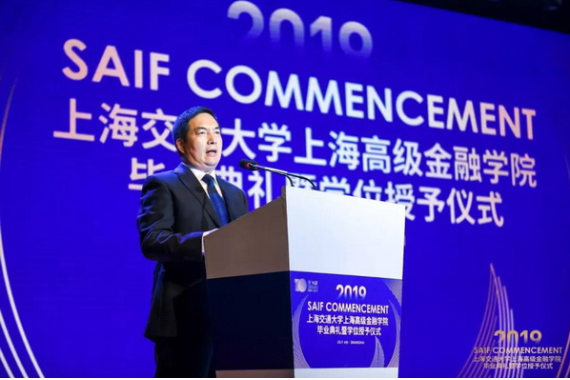
June 28, 2019
2019 International Conference on FinTech Launched at SAIF
On June 10-11th, 2019 International Conference on FinTech was held at Shanghai Advanced Institute of Finance (SAIF), Shanghai Jiao Tong University (SJTU). It was co-sponsored by SAIF, China Academy of Financial Research (CAFR), CAFR FinTech Research Center, SJTU School of Mathematical Sciences, SJTU Artificial Intelligence Research Institute, the National University of Singapore (NUS) Suzhou Research Institute, NUS Research Institute of Risk Management, NUS Quantitative Finance Center and Digital Finance. The conference welcomed over 260 participants, including representatives from research institutions in China, the United States, Singapore, Germany, and Switzerland; leading FinTech companies in China; and traditional financial institutions at home and abroad. The two-day event consisted first day industry-oriented programs and second day academic discussion on the shortlisted papers. Prof. David Li, Professor of Finance at SAIF, Associate Director of CAFR, Director of CAFR FinTech Research Center and Chairman of the Conference, presided over the event. Prof. Chun Chang, Executive Dean at SAIF, Prof. Weidong Liu, Deputy Dean of SJTU School of Mathematical Sciences; and Prof. Min Dai, Director of NUS Quantitative Finance Center and Co-chairman of the Conference, addressed opening speeches. As one of the co-sponsors, CAFR FinTech Research Center was founded on April 20, 2019, dedicated to building a world-class think tank and an open research platform in the area of FinTech. It is a pioneer and promoter of theoretical and practical FinTech research in China and worldwide. It is committed to carry out research on policies, theories, methods, and applications in the field of FinTech to: drive FinTech-related academic and practical interaction; create an exchange mechanism and platform in line with international standards; cultivate high-end managers and professionals urgently needed by the FinTech industry; facilitate the integration of industry, education, and research” in FinTech; and build up a FinTech ecosystem. Prof. David Li, Professor of Finance at SAIF and Associate Director of CAFR, serves as Director of CAFR FinTech Research Center.
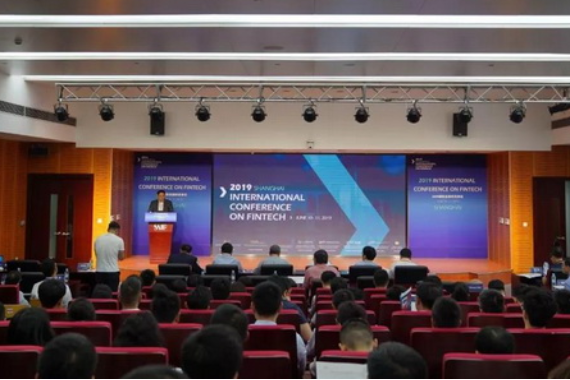
June 07, 2019
SAIF 10th Anniversary and Beijing Forum 2019
On June 15th, Shanghai Advanced Institute of Finance (SAIF) celebrated its 10th anniversary and held SAIF (Beijing) Forum 2019, which gathered leading economists and industry leaders from home and abroad. Paul M. Romer, 2018 Nobel Laureate in Economics and Professor of Economics at New York University; Guiping Liu, President of China Construction Bank; Jiang Wang, Chair of the Faculty Council of SAIF; Guoqiang Long, Deputy Director of the Development Research Center of the State Council; and Fang Cai, Vice President and Member of the Chinese Academy of Social Sciences, delivered keynote speeches. Chun Chang, Professor of Finance and Executive Dean of SAIF, addressed the gathering on behalf of the organizer. Ning Tang, Founder and CEO of CreditEase; Yonghua Lin, President of IBM China Research Institute; Jie Yang, General Manager of Pre-sales System Engineering Dept. of Dell Technology Group Greater China; Jianguang Shen, Vice President and Chief Economist of JD Digits; and Feng Li, then Professor of Accounting at SAIF, engaged in a panel discussion: “Technology and Innovation Drives Financial Development”. The panel discussion was presided over by Hong Yan, then Professor of Finance and DeputyDean of SAIF and Vice President of the China Academy of Financial Research at Shanghai Jiao Tong University. Jiange Li, Chairman of Sun Yefang Economic Science Foundation, concluded the event with his remarks. Jie Pan, Associate Dean of SAIF; and Ning Zhu, then Professor of Finance at SAIF, delivered speeches at the opening and keynote sessions, respectively. The 10th Anniversary Celebration Luncheon was held on the same day, attended by more than 100 guests, including: SAIF alumni, media, partners, and other stakeholders. Paul M. Romer and Yongding Yu made keynote speeches at the Luncheon and communicated with guests.
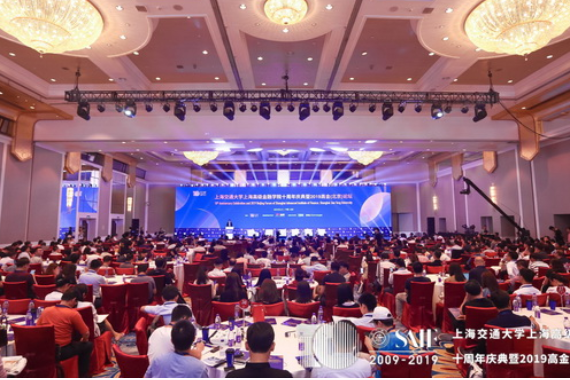
April 22, 2019
“New Era, New Finance” SAIF Celebrated Its 10th Anniversary
On April 20th, 2019, Shanghai Advanced Institute of Finance (SAIF), Shanghai Jiao Tong University (SJTU) celebrated its 10th anniversary at Wenzhitang Auditorium on SJTU Xuhui Campus, under the theme of “New Era, New Finance”. Qing Wu, Deputy Mayor of Shanghai and Chairman of the SAIF Board; and Zhongqin Lin, President and Deputy Secretary of the CPC Committee of SJTU and Fellow of the Chinese Academy of Engineering, addressed the ceremony. Prof. Jiang Wang, Chairman of SAIF Faculty Council, presented a report for the celebration. Guangshao Tu, Adjunct Professor at SJTU and former Vice Chairman and General Manager of China Investment Corporation; Xinghai Fang, Vice Chairman of China Securities Regulatory Commission; and Franklin Allen, professor of Finance and Economics at Imperial College London and former President of the American Academy of Financial Management, delivered keynote speeches. Nearly 1,000 participants witnessed the celebration, including: Yang Zheng, Director of Shanghai Municipal Financial Regulatory Bureau; Jing Lu, Director of Shanghai Municipal Education Commission; Dexiu Ma, former Secretary of the CPC Committee of SJTU; Jie Zhang, former President of SJTU and Fellow of the Chinese Academy of Sciences; Zhen Huang, Vice President of SJTU and Vice Chairman of Shanghai CPPCC; Xuemin Xu, Member of the Standing Committee of the CPC Committee and Vice President of SJTU; Prof. Ming Su, former Deputy Secretary of the Standing Committee of the CPC Committee of SJTU and Director of the Education, Science, Culture and Health Committee of Shanghai Municipal People's Congress; Quyuan Ye, former Executive Vice President of SJTU; Chun Chang, Executive Dean and Professor of Finance at SAIF; Qigui Zhu, Secretary of the CPC Committee at SAIF; representatives of Chinese and international universities and colleges; representatives of SJTU affiliates; representatives of alumni at home and abroad; and current students and faculty. All gathered together to review the journey over the past decade and look forward to the future. The celebration was presided over by Qigui Zhu, Secretary of the CPC Committee of SAIF. The keynote speeches were mediated by Chun Chang, Executive Dean at SAIF. Back on April 19, 2009, SAIF was formally unveiled, aiming to become a world class institution of research and advanced learning in finance and management. It is based on an international first-class business school model, in compliance with the national strategy of Shanghai Municipal People’s Government to build Shanghai into an international financial center.
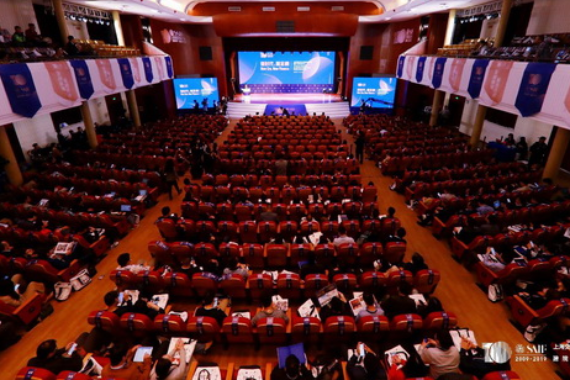
December 19, 2018
Launching Ceremony of Shanghai Finance Forum 2018 and Global Financial Leaders F ...
On December 15, 2018, Shanghai Finance Forum 2018 officially kicked off. It was hosted by Shanghai Advanced Institute of Finance (SAIF), Shanghai Jiao Tong University (SJTU); China Academy of Financial Research (CAFR); and International Financer Forum. Guangshao Tu, Vice Chairman and President of China Investment Corporation; Stanley Fischer, former Vice Chairman of Federal Reserve and former Governor of the Bank of Israel; Howard Davies, Chairman of the Royal Bank of Scotland; and many other international financial experts attended the event and discussed the role of financial leaders in the new era. Given the uncertainties in the international economy and the coexistence of economic opportunities and challenges in China, Shanghai Finance Forum 2018 focused on the theme of “Openness and Integration: Connecting China’s Financial Industry to the World”. This brought together the world's top scholars, politicians and industry leaders to brainstorm and explore the new roadmap for key issues in finance and global economic growth. At the beginning of the event, Qing Wu, Deputy Mayor of Shanghai; Sixian Jiang, Secretary of the CPC Committee of SJTU; and Prof. Jiang Wang, Chair of SAIF Faculty Council and Mizuho Financial Group Professor at the MIT Sloan School of Management, delivered speeches. On the same day, the Global Financial Leaders Forum, jointly sponsored by SAIF and CAFR (along with a global community of institutions and professionals interested in China's financial development), was also launched at the event. The Forum will strive to create an open, professional and pragmatic platform of communication and research. It will be a think tank and cooperation ecosystem, plan for China's financial modernization and internationalization, and contribute to the deep integration of the world economy.
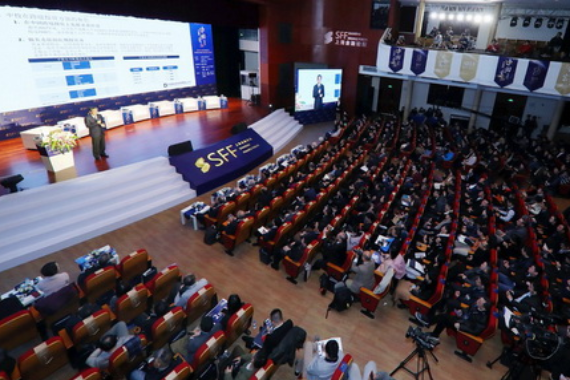
November 21, 2018
SAIF MF Employment Report 2018 Released
Shanghai Advanced Institute of Finance (SAIF) at Shanghai Jiao Tong University (SJTU) recently released the employment report for SAIF Master of Finance (MF) graduates in 2018. The data shows that SAIF MF graduates are consistently favored by the market and are fully employed even before graduation (boasting the highest salary at over RMB 1,000,000). The SAIF MF Program has been the flagship program at SAIF since its inception in 2009. It has achieved ongoing and rapid growth, and it has won an outstanding reputation in the market. This year greeted 47 SAIF MF graduates, 62% male and 38% female, who are mostly undergraduates from leading universities in China, including: Peking University (21%), Fudan University (21%), Shanghai Jiao Tong University (19%), Tsinghua University (4%), and overseas students (accounting for 13%). The undergraduate majors are predominated by the fields of Economics, Management, Finance, Accounting, Finance and languages (62%); the remaining are accounted for by multidisciplinary backgrounds (38%). According to the report, 46 out of 47 graduates have been successfully employed with a mean starting salary of nearly RMB 300,000 and a median value of RMB 240,000. (The remaining graduate chose to continue his or her studies.) SAIF MF curriculum is designed to anticipate future trends, as well as to meet requirements for current practices within the financial industry — both in China and abroad. In addition to the technical skills provided by major finance classes, the LIVE Learning Center and the “Extended Learning and Student Activities” (ELSA) seminars help students to enhance their practical skills and knowledge. The SAIF MF Program was ranked No.1 in Asia and ranked No.10 globally by the Financial Timesin 2018, which is an unparalleled achievement in Asia in terms of investment return and salary growth.
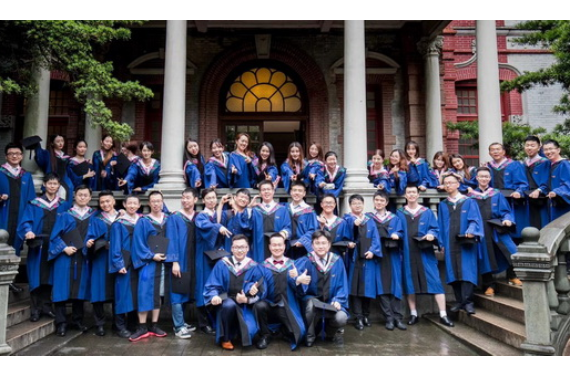
October 22, 2018
SAIF and King's College London Signed a Memorandum of Cooperation
On October 15, 2018, the Signing Ceremony of the Memorandum of Cooperation between Shanghai Advanced Institute of Finance (SAIF) at Shanghai Jiao Tong University (SJTU) and King's College London was held at the SAIF Xuhui Campus. The memorandum was signed by Professors Chun Chang (Executive Dean at SAIF) and Stephen Bach (Dean of King's Business School). Prof. Hong Yan (Deputy Dean at SAIF) and Prof. Igor Filatotchev (Associate Dean of King's Business School) attended the event. According to the memorandum, the two parties will combine their strong faculty and industry resources to cooperate in a number of key areas, including research, talent training, and international influence. In terms of training, the two parties will further work together in the development of international financial professionals through dual-degree programs, financial executive education programs, and exchange programs.
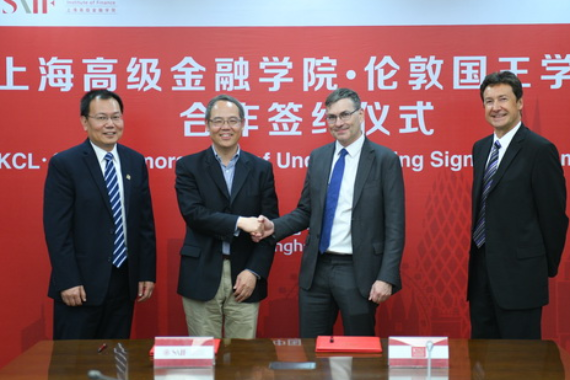
September 07, 2018
Prof. Haizhou Huang Won the Pagano and Zechner Best Paper at EFA
"The Capital Structure of Nations", co-authored by Prof. Haizhou Huang, Distinguished Professor at Shanghai Advanced Institute of Finance (SAIF); and Prof. Patrick Bolton, Professor of Economics and Finance at the University of Columbia, won the “Pagano/Zechner Best Paper Award in 2017/18” granted by the European Finance Association (EFA). The Pagano/Zechner Best Paper Award was created by the EFA to recognize the best papers published in its official journal,Review of Finance, over the past year. The award ceremony will be held at the EFA’s annual conference. The Chinese version of the paper was originally published inComparative Studies(Volume 92), with a total word count of 5,284 Chinese characters. The official account ofComparative Studiesalso published the award announcement recently. From the perspective of innovative economic theory, this paper establishes a new economic model to analyze capital structure at the national level and creates a common micro-theoretical foundation for three independent and interrelated economic disciplines, namely: Monetary Economics, Fiscal Theory, and International Finance (while the micro-theoretical foundation is based on corporate finance).
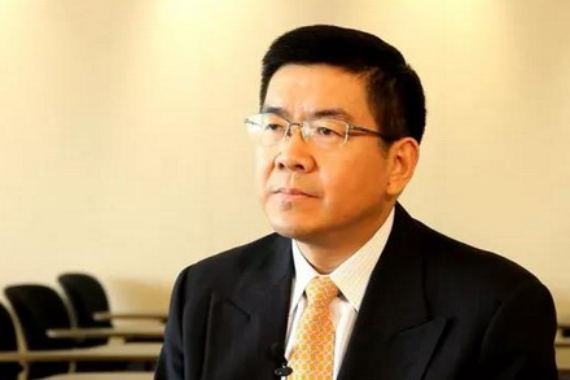

211 West Huaihai Road
Shanghai 200030, China
Tel: +86 21 6293 3500
9th Floor, Building T6, Hongqiao Hui
990 Shenchang Road
Shanghai 201106, China
3rd Floor, Building D, Chenfeng Building
800 Tongpu Road
Shanghai 200062, China
5th Floor, West Tower, World Financial Centre
1 Dong San Huan Middle Road
Chaoyang District, Beijing 100020, China
Tel: +86 10 5081 5880
1203 Tower 7, One Shenzhen Bay
Nanshan District, Shenzhen 518000, China
Tel: +86 755 8663 8815
© Shanghai Advanced Institute of Finance All Rights Reserved.


Top